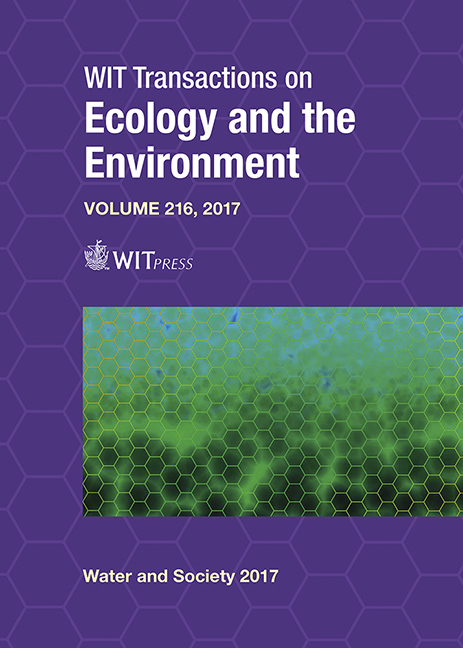WATER QUALITY NETWORK BRIDGING REGULATION, TECHNOLOGY AND SOCIETY IN BRAZIL
Price
Free (open access)
Transaction
Volume
216
Pages
8
Page Range
221 - 228
Published
2017
Paper DOI
10.2495/WS170211
Copyright
WIT Press
Author(s)
VERA MARIA LOPS PONÇANO, GUILHERME ARY PLONSKI
Abstract
Water is one of the key resources for life. Its composition – based on reliable laboratory results, like physical, chemical and microbiology analysis – is essential for assessing its quality. Nowadays, society is much more aware about water value, and quality water is a global concern. It poses risks in different ways, like microbiological, chemical and physical forms, and is part of the Sustainable Development Agenda to be achieved by 2030: item 6 “Ensure access to water and sanitation for all”. Many actions were taken to preserve this necessity; looking for ways to improve culture and systems and minimizing threats. Water-related matters become increasingly important and attractive to Brazilian society: calling people’s attention, media coverage and political decisions, with subsequent regulations like those for drinking water (Ordinance 2914:2011). The national Water Supply and Sanitation Network (RESAG) was created in 2011 as part of the Brazilian Technology System (Sibratec), established by the Ministry of Science Technology Innovation and Communication. Its objective is developing technology and innovation to meet market demands, by means of competent laboratories to support decision makers, mainly in the health and environment areas. For consolidation of the RESAG structure, it was organized as a network system, comprising of 37 laboratories of 19 institutions from 10 Brazilian States, covering the North, Northeast, South and Southeast regions. Currently, its structure involves 310 researchers and technicians that are developing projects on management, training, analytical competence, accreditation, proficiency testing, certified reference materials production, calibration, and materials for sanitation. Many players are required to cover the area of sanitation and water supply, which explains why cooperative platforms such as RESAG have demonstrated many beneficial results. Proactive actions and wise policies, legislation and regulation, can make water management more efficient and enable positive results for human well-being, environment, and national economies.
Keywords
water, quality, sanitation, drinking water, RESAG, Sibratec, laboratory, technological network





